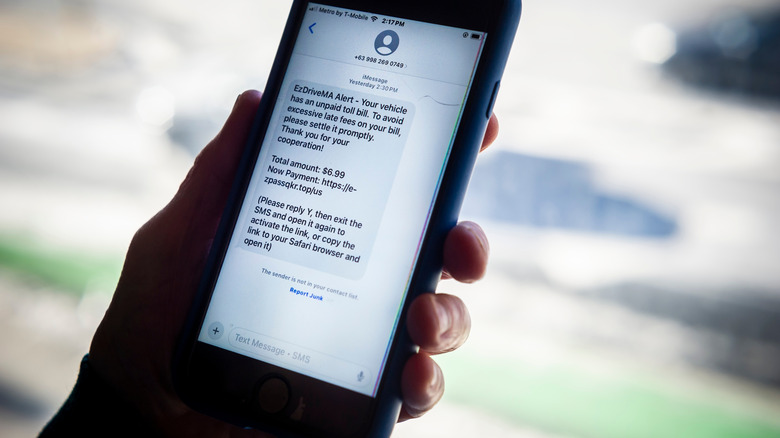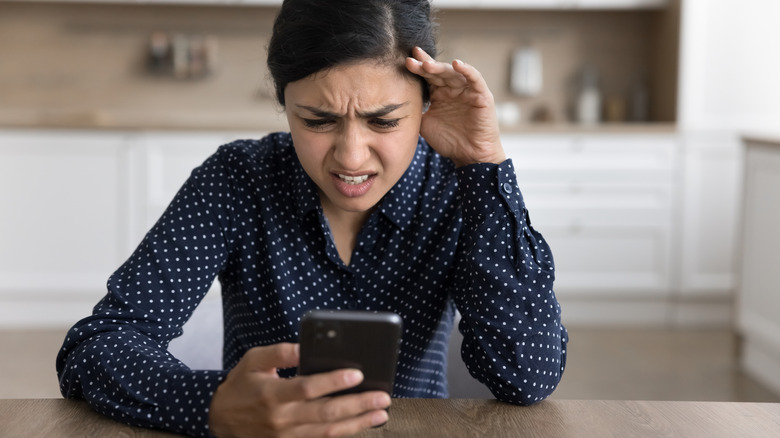Does The DMV Send Out Text Messages? How To Know If You're Being Scammed
Like most things in the world, innovations in technology have both positive and negative impacts on society. On one hand, the latest technologies like AI models are making tasks easier in various areas like healthcare and the space sector; on the other hand, they're also making it easier for scammers to portray themselves as a legitimate person in front of their target. According to GASA (Global Anti-Scam Alliance), AI-related scams have increased by more than 1500% in the Asia-specific region in the last three years.
One of the ways AI is used in scams is to write more legitimate and natural-sounding text messages. Cybercriminals then use these AI-written messages to trick targets into revealing their personal data or even downloading a malicious application on their device. This way of scamming people using text messages is known as smishing, and it has been in the news in America quite a bit in the last few days, where residents of different states have reported receiving text messages that appear to be from the Department of Motor Vehicles office.
According to a USA Today report, the message has been reported in most of the country's states, including Texas, Pennsylvania, Florida, New Jersey, Georgia, New York, Illinois, and more. This isn't the first time smishing scams are getting popular in the United States. In 2021, many residents of Texas reported receiving emails and text messages from someone posing as a DMV official. Following massive reports from the public, the Texas Department of Motor Vehicles issued an advisory to inform people about these fraudulent messages and emails. Here's everything you need to know about the current DMV scam messages and what you should do if you have received one.
Interacting with a DMV message can make you the victim of a smishing attack
Cybercriminals are using different texts in different states in their DMV scam messages; however, the meat of the whole message is the same in all the states—you have an outstanding traffic ticket, and if you don't clear it by the given date, then your vehicle registration and driving privileges will be suspended. The text message also threatens that you'll be prosecuted, and your credit score will be negatively affected. At the end of the text message, you're provided a link via which you can pay the fine.
The text message also includes the law code (Code 15C-16.003) via which the charges will be applied to you. Funnily enough, the Las Vegas Metropolitan Police Department made a post on X informing users that this code doesn't even exist in the law book. It seems that the scammer who is behind all this is probably new in the industry and didn't even care about doing some research and mentioning the correct law codes. Anyway, what should you do if you've received this DMV scam message?
First off, you should not reply to the text and also not click the link attached to it. Furthermore, the Federal Trade Commission suggests copying that spam message and forwarding it to 7726 (SPAM) so that your service provider can spot and block all such messages. You can also report the message to the Federal Trade Commission or to the messaging app you use. The FBI recently issued some guidelines, such as carefully monitoring the contact number and the attached URL, to keep your smartphone safe from scams. You must follow them to ensure you're safe from any such scam in the future.

